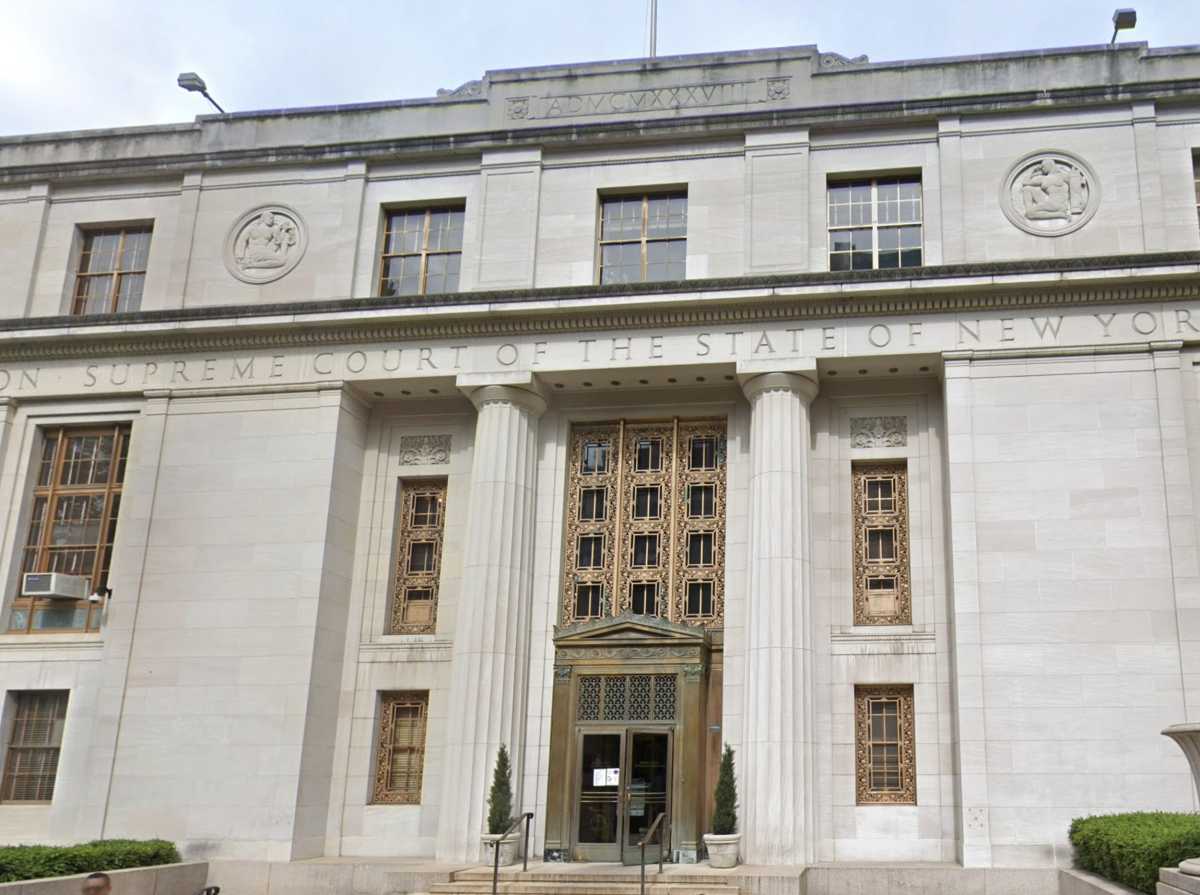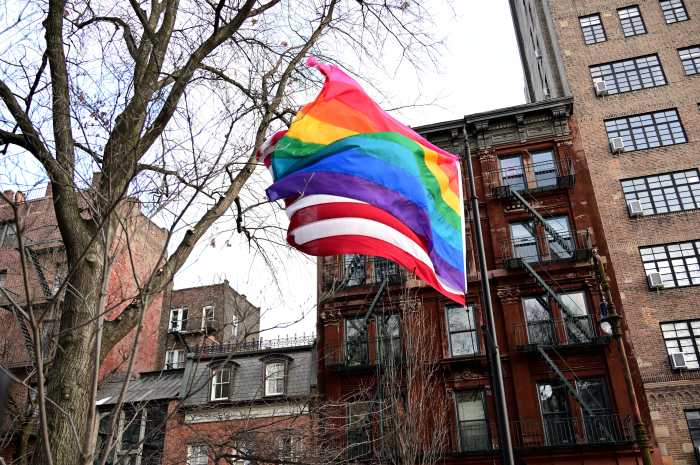On Oct. 8, a four-judge panel of the New York Appellate Division, 2nd Department, ruled that Nassau County Supreme Court Justice R. Bruce Cozzens erred by denying Long Island Roller Rebels’ motion for a preliminary injunction in their lawsuit challenging a Nassau County Local Law that prohibits the use of Nassau County park property “for the purposes of organizing a sporting event or competition that allows athletic teams or sports designated for females, women, or girls to include biological males as competitors.”
Long Island Roller Rebels is a women’s roller derby league that allows transgender women to participate in its league as members of competing teams. Roller Rebels alleges in its complaint that several transgender women are members of teams in its league, and that it relies on access to the county parks for its workouts and competitions.
The Nassau County legislature enacted Local Law 121-24 after an attempt by County Executive Bruce Blakeman to establish the same prohibition by executive order was rejected by the state courts. The Roller Rebels had challenged the executive order, and as soon as the county law was enacted, they filed suit. Represented by the New York Civil Liberties Union, they challenged the local law as a violation of three state laws.
Both the New York State Human Rights Law and the New York State Civil Rights law prohibit places of public accommodation from discriminating because of gender identity, and the Municipal Home Rule Law prohibits the enactment of local laws that violate state laws. The public parks are places of public accommodation, and on its face the Nassau County enactment can be argued to violate the ban on discrimination because of gender identity by denying usage permits for athletic activities that allow transgender women to compete on women’s teams.
Judge Cozzens issued an order denying Roller Rebels’ motion for preliminary injunction on Jan, 27, 2025. Roller Rebels appealed that denial to the Appellate Division, which heard argument on the appeal on Sept. 25. Meanwhile, Roller Rebels and Nassau County had filed cross-motions with Justice Cozzens seeking summary judgment. Summary judgment is a ruling in favor of the moving party as a matter of law when there is no factual dispute that needs to be resolved with a trial.
On Oct. 6, Justice Cozzens granted Nassau County’s motion for summary judgment and denied Roller Rebels’ motion for summary judgment, ruling that the local law did not violate state law. This is a final trial court ruling on the merits, which Roller Rebels will appeal up to the court that granted its motion for preliminary injunction just two days later. Justice Cozzens’ summary judgment opinion relies heavily on a body of possibly irrelevant federal law under Title IX of the Education Amendments of 1972, which is a statute that provides that educational institutions that receive federal money may not discriminate “on the basis of sex” in their programs.
Federal courts considering whether women’s scholastic sports programs violate Title IX when they exclude transgender individuals are divided in their views, with some upholding the exclusion and some striking it down. Some cisgender female athletes have filed lawsuits contending that their rights under Title IX are violated when schools allow transgender women to compete against them. The US Supreme Court has granted review of cases from two states that have passed legislation excluding transgender women and girls from competing in women’s sports, which may address the issues under Title IX and the Equal Protection Clause of the 14th Amendment. The court has not yet announced the date for oral arguments in those cases.
The Supreme Court has never directly addressed the question of whether Title IX or the Equal Protection Clause protect transgender people from discrimination due to their gender identity or transgender status. Roller Rebels’ lawsuit does not refer to Title IX or invoke the Equal Protection Clause. Rather, they base their claims solely on the New York statutes. Furthermore, the Nassau County parks are not “educational institutions” within the meaning of Title IX. However, Nassau County claims in its defense that the county parks receive federal funds that are conditioned on complying with Title IX’s ban on sex discrimination and it argues that federal law thus preempts the state statutes if they would require the parks to allow women’s sports events that include transgender individuals. Under the Supremacy Clause of the US Constitution, federal laws take priority over state or local laws when they conflict.
In 2020, the Supreme Court ruled in a case arising under Title VII of the Civil Rights Act of 1964 that Title VII’s ban on discrimination “because of sex” in employment would include discrimination because of an individual’s transgender status. When Joe Biden took office as president in January 2021, he issued an executive order taking the position that the Title VII precedent could be applied to other laws banning sex discrimination, such as Title IX, and the Department of Education followed up with guidance and regulations to that effect. Some federal courts disagreed with the Biden Administration’s position, and subsequently the Trump Administration weighed in against it. Indeed, the Equal Employment Opportunity Commission, which enforces Title VII, has stopped processing claims of discrimination because of gender identity, as has the Office of Civil Rights in the Education Department.
In his Oct. 6 summary judgment ruling, Justice Cozzens references Title IX and appears to favor Nassau County’s preemption argument. More particularly, he seems to resolve hotly contested factual issues about whether transgender women present fairness and safety issues in competing against cisgender women without having had a trial, based mainly on his “common sense” view that it is unfair and dangerous to have “biological men” (the term used in the local law) competing with women in the roller derby sport, as attorneys for Nassau County have argued. The opinion evades any subtlety in its treatment of the facts.
Just two days after Justice Cozzens granted the county’s motion for summary judgment, the Appellate Division issued its ruling holding that Justice Cozzens erred in January when he denied Roller Rebels’ motion for a preliminary injunction. The Appellate Division stated that “the order is reversed, on the law and in the exercise of discretion, with costs, and the plaintiff’s motion for a preliminary injunction enjoining the enforcement of Local Law No. 3-2024 during the pendency of the action is granted.”
Assuming a quick notice of appeal by Roller Rebels, the action is still “pending” despite Justice Cozzen’s grant of summary judgment to the county. The main point of contention between Cozzens and the Appellate Division is his conclusion that Roller Rebels was unlikely to prevail on their contention that the local law was unlawful, while the Appellate Division stated that “the plaintiff demonstrated a likelihood of success on the merits on the cause of action alleging discrimination on the basis of gender identity,” and further commented, referring to the Human Rights and Civil Rights Laws, “Courts must construe these laws ‘broadly in favor of discrimination plaintiffs, to the extent that such a construction is reasonably possible,” and noting that “a local law that violates a general state law violates Municipal Home Rule Law Section 10(1)(i).”
Presumably, the Appellate Division’s Order means that the county cannot enforce the law while the Appellate Division (and potentially the state’s highest court, the Court of Appeals) considers the forthcoming appeal of Judge Cozzen’s summary judgment decision.
The justices on the Appellate Division panel are Betsy Barros, Paul Wooten, Laurence L. Love, and Susan Quick.




































